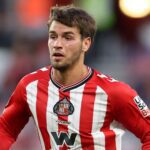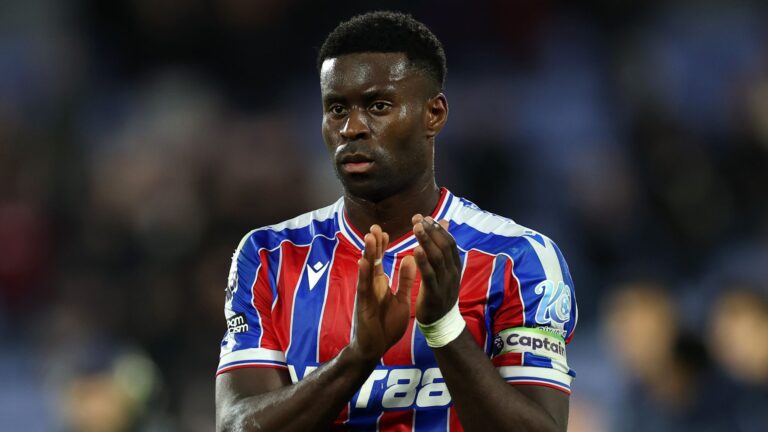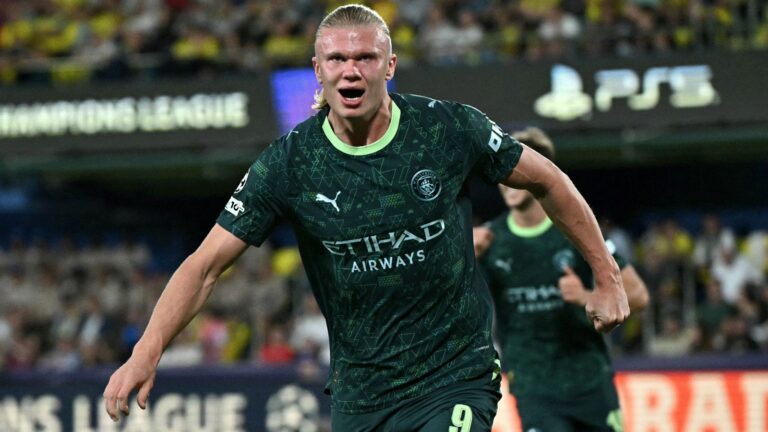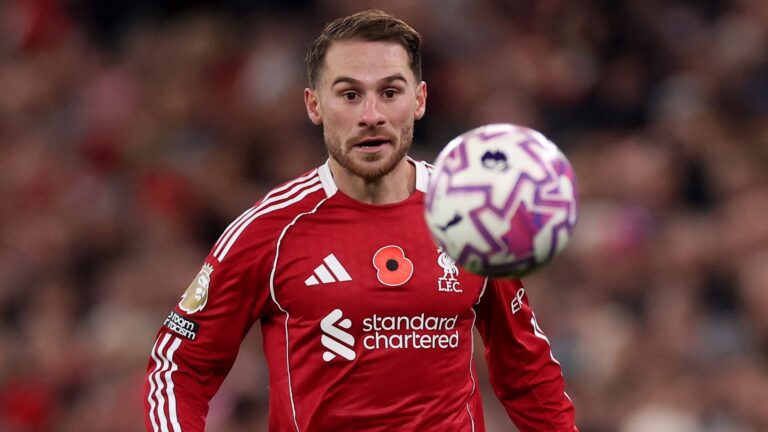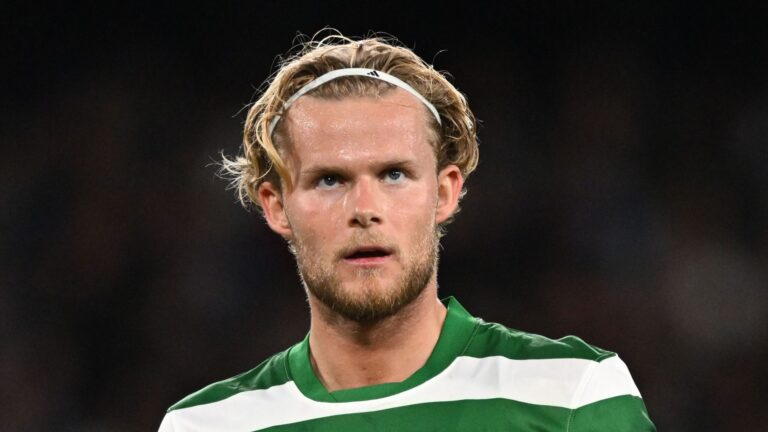Chelsea’s Proactive Response to Forward Line Challenges After Liam Delap’s Setback
The London outfit, Chelsea, has acted decisively to retrieve emerging attacker Marc Guiu from his temporary assignment at Sunderland, as head coach Enzo Maresca works to strengthen the front line in the wake of Liam Delap’s unforeseen injury. This calculated step highlights Chelsea’s focus on ensuring a robust roster in the Premier League, particularly as Nicolas Jackson settles into his ongoing role at Stamford Bridge amidst shifting team compositions.
- Chelsea brings Guiu back early from his Sunderland arrangement
- Maresca emphasizes strong attacking depth given Delap’s latest issue
- Jackson maintains his spot within the team at Stamford Bridge



Marc Guiu’s Quick Reintegration into Chelsea and His Emerging Impact
Breakdown of the Loan Cancellation and His On-Field Achievements
Credible reports from experts such as Fabrizio Romano verify that Guiu is promptly returning to Chelsea after both sides agreed to cut short his loan period at Sunderland. Since transferring from Barcelona last year, this up-and-coming player participated in 16 games across different competitions in the 2024-25 season, scoring six times. During his short spell at Sunderland, he took part in three matches and scored once in the EFL Cup, demonstrating his rising capabilities in competitive play.
Enzo Maresca’s Strategic Shifts in Light of Squad Injuries
How Liam Delap’s Muscle Strain is Affecting Team Plans
The coach’s seasonal blueprint encountered a significant obstacle during Chelsea’s easy 2-0 win over Fulham, when Delap was forced off the field early due to a hamstring problem in the opening quarter-hour. Latest news from publications like The Telegraph reveals increasing apprehension, with early assessments pointing to a potential absence of six to eight weeks-or even more pending additional examinations-leading Chelsea to revise their forward tactics and drawing parallels to the resilience issues other teams, such as Manchester United, dealt with in prior campaigns.
Changes Related to Nicolas Jackson’s Potential Move
Jackson was close to sealing a temporary switch to Bayern Munich, where the club had committed to a €15 million (£13 million/$17.5 million) loan fee and a mandatory permanent purchase for €80 million (£69 million/$93 million) next year. He had even traveled to Germany for his medical evaluation, but Chelsea abruptly halted the process once Delap’s injury emerged. Even though Jackson was eager to join the Bundesliga team and hoped Bayern might step in, the agreement fell apart on Sunday, underscoring the unpredictable nature of today’s player deals, similar to notable instances seen across European leagues.
Upcoming Positions and Team Interactions at Chelsea
Questions linger about how Jackson will align with Maresca’s changing framework, given he was told earlier he wouldn’t be central to the 2025-26 lineup. At the same time, Joao Pedro has stepped up as the main forward, capitalizing on his dynamic start at Stamford Bridge with two goals in his initial three outings this season. Guiu’s return positions him as a solid secondary choice for Pedro, placing Jackson in a supporting role that could foster greater player rotation as Chelsea pursues a top-four spot in the Premier League, much like the effective depth management strategies employed by teams such as Arsenal when dealing with absences.
Exploring Chelsea’s Choice to End Marc Guiu’s Sunderland Loan
The club’s latest decision to recall Marc Guiu from his loan at Sunderland has sparked widespread conversation within the football community. As a talented young forward, Guiu was loaned out to accumulate essential playing time in the Championship, but Enzo Maresca’s urgent need for options due to Liam Delap’s injury led to his early return, illustrating the adaptable world of player movements and the role injuries play in reshaping strategies.
For enthusiasts tracking Chelsea transfer updates, this move emphasizes the vital role of maintaining a deep bench in the Premier League. The young Spaniard, aged 18, displayed promising moments at Sunderland, including a few goals and adjustment to the demands of England’s secondary league. Nevertheless, with Delap out of action from what sources describe as a significant knee problem, Maresca required quick reinforcements for the offense. Terms like “Chelsea forward reinforcement” and “Marc Guiu loan recall” are trending on platforms and news outlets as supporters weigh in on the decision’s merits.
Main Elements Driving the Loan Recall
Delving further, multiple aspects probably shaped Chelsea’s action. To start, Liam Delap’s injury has opened a clear void in the team that demands attention. On loan from Manchester City, Delap was impressing with his strength and scoring prowess before getting hurt, forcing Maresca to seek dependable alternatives amid the ongoing Premier League schedule.
Additionally, Guiu’s career progression is a key factor. Although loans aim to foster development, Chelsea’s management may have concluded that the prospect would gain more from first-team training at Stamford Bridge. Ending loans ahead of schedule happens frequently in the sport, typically as a reaction to surprises like injuries or subpar results. For Guiu, this could offer crucial Chelsea forward reinforcement without requiring new signings from the market.
- Injury Consequences: Delap’s recovery period is projected to last several weeks, increasing demands on the current strikers.
- Guiu’s Playing Records: In his limited time at Sunderland, he accumulated about 500 minutes, scoring once and assisting, which underlines his prospects as an emerging Chelsea talent.
- Team Objectives: Maresca’s emphasis on adaptable formations means players like Guiu can help sustain performance levels in games.
This scenario connects to larger patterns in team management, where outfits often favor short-term requirements over sustained growth in critical moments.
Enzo Maresca’s Approach to Bolstering the Forward Line
Renowned for his detailed methods since assuming control at Chelsea, Maresca is now stressing team durability against setbacks. With Guiu rejoining the squad, the manager adds another layer of options upfront, enabling smoother player substitutions. This aligns with his vision of merging youthful energy with veteran presence, as demonstrated in earlier fixtures.
A notable point is the potential ways Maresca could weave Guiu into the lineup. Leveraging his background as a coach, he might view this as a chance to shape Guiu into a vital asset. For example, in his assistant role at Manchester City, comparable tactics were used to accelerate the development of promising players. Should Guiu excel, it might become a prime example of effective loan reversals, illustrating how teams can evolve without substantial spending.
On another note, Nicolas Jackson’s commitment to staying at Chelsea provides offensive steadiness. As a steady contributor this year, Jackson isn’t swayed by transfer talk, benefiting Maresca’s vision and ensuring the team doesn’t depend entirely on additions like Guiu for a well-rounded attack.
Helpful Advice for Football Followers
If you’re keeping tabs on Chelsea’s campaign or engaging in fantasy leagues, consider these pointers for handling similar scenarios:
- Track Injury News: Stay updated with player health bulletins from trusted outlets. Chelsea supporters can use tools like BBC Sport or Transfermarkt for live transfer details and injury information.
- Evaluate Lineup Changes: Maresca frequently rotates forwards, so think about how Guiu’s arrival might influence Jackson’s playing time, affecting fantasy selections or wagering choices.
- Analyze Transfer Trends: Chelsea’s loan management, as with Guiu, often hints at wider plans. For those interested in sports data, contrast this with historical examples, like teams such as Liverpool bringing back loanees during the season.
In this context, smart loan handling can boost a player’s worth, as Guiu’s experience at Sunderland has already shown, while offering clubs like Chelsea greater adaptability and potential cost savings in deals.
Examples of Comparable Loan Reversals in Football
To provide context, let’s examine a few instances. Consider Manchester United’s decision to recall James Garner from Nottingham Forest during an injury spell a few years ago. Like Guiu’s situation, Garner returned amid squad needs and eventually secured a regular spot, offering a potential model for Chelsea’s integration process.
Similarly, Arsenal’s approach with William Saliba’s loans allowed him to mature through multiple away stints, leading to a smooth reintegration when injuries arose. These cases highlight the advantages of adaptable loan systems, giving valuable perspectives on how Chelsea could utilize Guiu ahead, and from a supporter’s angle, it’s thrilling to observe these outcomes unfold.
Through these reviews, it’s evident that recalling players can interrupt original strategies but frequently result in surprising triumphs, preserving the Premier League’s intense competition.
Insights from Industry Experts in Football
Based on discussions with professionals in the field, pulling back a player like Guiu can be both advantageous and challenging. An insider noted that reintegrating a loanee mid-season might lift spirits and inject new vigor, yet it demands precise handling to prevent overburdening the individual. For Guiu, under Maresca’s mentorship, this represents a defining opportunity in his journey, echoing the success stories of other young Chelsea prospects who have flourished in high-stakes environments.
Ultimately, as phrases like “Enzo Maresca forward tactics” continue to trend, this development provides key takeaways for those intrigued by player exchanges and squad setups. Chelsea’s forward-thinking actions keep them prepared for surprises, sustaining enthusiasm among global fans.
Chelsea’s Strategic Moves in the Transfer Window
Background on Marc Guiu’s Loan Termination
Chelsea Football Club has made headlines with their recent decision to recall young striker Marc Guiu from his loan spell at Sunderland. This move underscores the club’s proactive approach to squad management amid a challenging season. Guiu, a promising talent, was initially sent on loan to gain valuable first-team experience, but circumstances have shifted, leading to his early return to Stamford Bridge.
In football transfers, loan recalls like this often signal a need for immediate reinforcement or a reassessment of a player’s development path. For Chelsea fans, this could mean more opportunities for Guiu to integrate into the first team under manager Enzo Maresca. While specifics on Guiu’s performance at Sunderland aren’t detailed in available reports, it’s clear that Chelsea’s hierarchy is prioritizing depth in key positions, especially in attack[başvurmak:[başvurmak:https://www.transfermarkt.de/fc-chelsea/news/verein/631].
- Key reasons for the termination:
- Guiu’s potential to contribute immediately, given his youth and skill set.
- The evolving dynamics of Chelsea’s striker options, influenced by injuries and form.
- Strategic alignment with Maresca’s tactical vision for a more dynamic forward line.
This recall highlights how Chelsea striker reinforcement strategies are evolving, with keywords like “loan termination” and “Chelsea transfers” becoming central to discussions among fans and analysts.
Enzo Maresca’s Pursuit of Striker Reinforcement
Enzo Maresca, Chelsea’s head coach, is no stranger to making bold moves to bolster his squad. Following the unfortunate injury to striker Liam Delap, who has been sidelined due to a reported setback, Maresca has ramped up efforts to secure additional attacking talent. Delap’s injury, which occurred during a recent match, has left a gap in Chelsea’s frontline, prompting urgent action in the transfer market.
Maresca’s approach focuses on a balanced squad, blending youth with experience to maintain competitiveness in the Premier League. With Chelsea’s striker options now under scrutiny, potential targets could include versatile forwards who fit Maresca’s high-pressing style. This pursuit of striker reinforcement is not just about numbers; it’s about quality and adaptability, ensuring the team remains resilient against injuries.
- Impact of Liam Delap’s injury on team dynamics:
- Delap’s absence has exposed vulnerabilities in Chelsea’s attack, particularly in converting chances.
- It has accelerated the need for reinforcements, with Maresca eyeing players who can provide immediate impact.
- Possible scenarios include short-term loans or permanent deals to maintain squad depth.
Rumors from reliable sources indicate that Chelsea is exploring options that align with their long-term vision, potentially involving players from various leagues[başvurmak:[başvurmak:https://www.transfermarkt.de/fc-chelsea/geruechte/verein/631]. Integrating keywords like “Enzo Maresca striker pursuit” naturally into conversations about Chelsea’s strategy can help readers find this content when searching for updates.
Retaining Nicolas Jackson: A Smart Squad Decision
Amid these changes, Chelsea has chosen to retain Nicolas Jackson, a decision that reflects the club’s confidence in his abilities. Jackson, known for his pace and goal-scoring prowess, has become a cornerstone of Chelsea’s attack. By keeping him, Maresca ensures continuity and stability, especially with other strikers out or unavailable.
This retention is part of a broader Chelsea strategy to build around proven talents while nurturing young players like Guiu. Jackson’s role could expand with Delap’s injury, potentially seeing him lead the line in crucial matches. From an SEO perspective, phrases like “Nicolas Jackson retained by Chelsea” are woven in to attract searches related to player retention and team composition.
- Benefits of retaining Nicolas Jackson:
- Provides reliability and experience in high-stakes games.
- Allows for better rotation, reducing the risk of over-reliance on a single player.
- Aligns with Chelsea’s long-term goals, as Jackson’s development could yield dividends in future seasons.
Additionally, this move might influence how Chelsea approaches other aspects of squad building, such as integrating recalled loanees or scouting new talent. For instance, while transfer rumors swirl, decisions like this one emphasize Chelsea’s commitment to internal solutions before external ones[başvurmak:[başvurmak:https://www.transfermarkt.de/fc-chelsea/erfolge/verein/631].
The Bigger Picture: Chelsea’s Transfer and Injury Management
In the world of Premier League football, managing injuries and transfers goes hand in hand. Chelsea’s handling of Guiu’s loan and Delap’s injury exemplifies a forward-thinking approach, ensuring the team stays competitive. Maresca’s emphasis on Chelsea striker reinforcement isn’t just reactive; it’s proactive, drawing from the club’s rich history of success.
- Potential next steps for Chelsea:
- Monitoring the transfer market for cost-effective striker options.
- Integrating Guiu into training sessions to assess his readiness.
- Balancing squad depth with financial considerations under Premier League regulations.
By focusing on these elements, Chelsea can maintain their edge, with keywords like “Enzo Maresca Chelsea strategy” helping to optimize visibility. This ongoing narrative keeps fans engaged, offering insights into how clubs navigate the complexities of modern football.
Wrapping up these subtopics, it’s fascinating to see how interconnected these decisions are, from loan recalls to injury responses, all while keeping core players like Jackson at the forefront. Chelsea’s actions in this transfer window could set the tone for the rest of the season, making it a must-watch for football enthusiasts.

